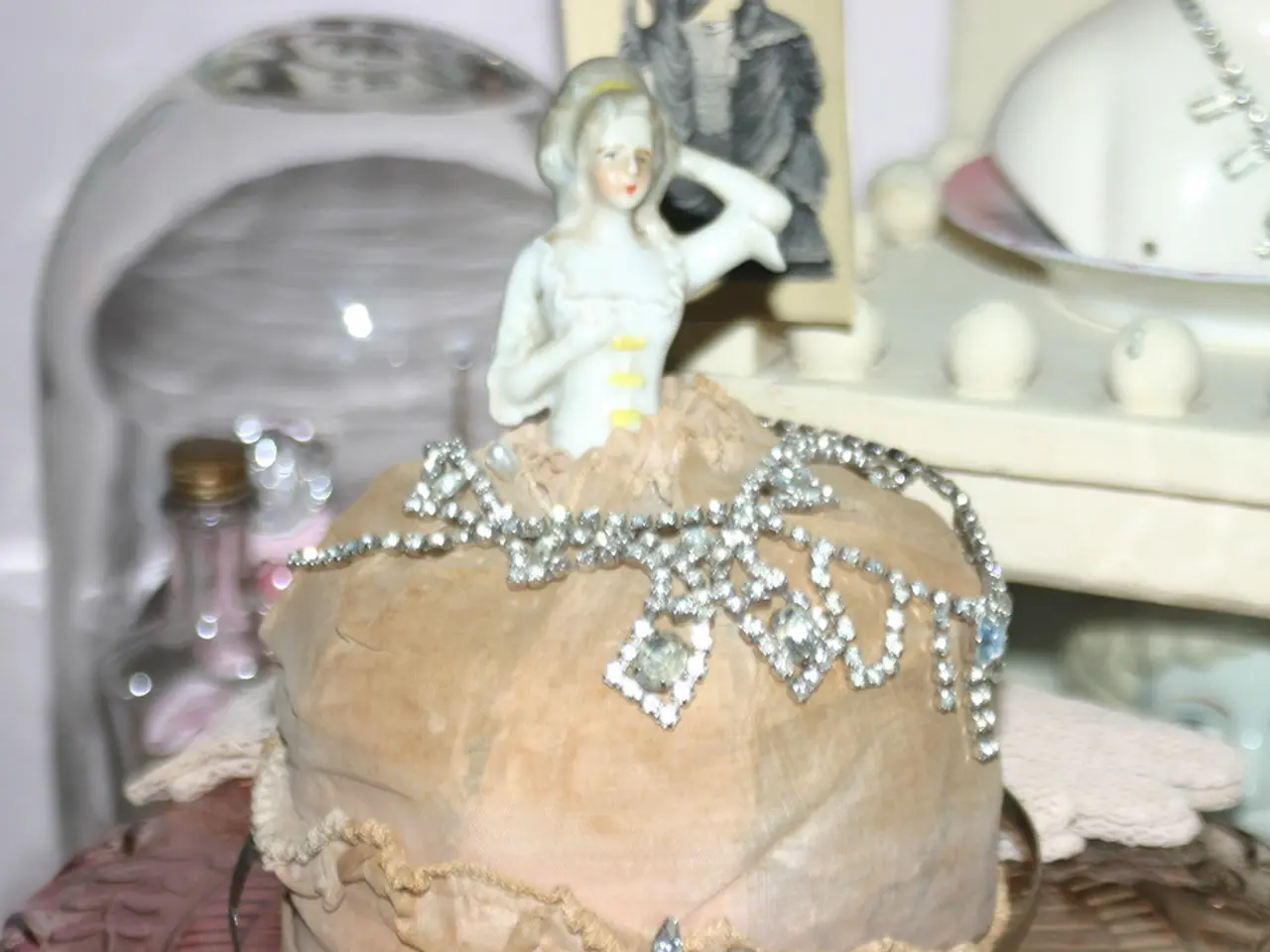Is a Demonic Entity Hidden in Your Labubu Toy Doll? Decoding the Viral TikTok Urban Legend
Labubu Dolls and the Mesopotamian Demon Pazuzu: A Case of Misinterpreted Resemblance
Labubu dolls, a popular collectible toy line created by Hong Kong artist Kasing Lung, have gained worldwide attention for their mischievous and playful characters. These fantasy creatures, designed with wide eyes, sharp teeth, and pointed ears, have become a global sensation and a fashion trend, particularly among adults [2].
However, some have drawn comparisons between Labubu dolls and Pazuzu, an ancient Mesopotamian demon known as the king of demons of the wind. This comparison stems from the perceived visual similarities between the two, with Pazuzu being famous in popular culture for his role in the horror film The Exorcist [1].
Despite these similarities, Labubu dolls are not officially connected to Pazuzu or any other demonic entity. They were created for Kasing Lung's 2015 fantasy book series The Monsters, drawing inspiration from children's literature such as Where the Wild Things Are [1]. While some owners have reported experiencing strange events after getting the dolls, these reports are anecdotal and speculative, and there is no evidence to support claims that Labubu dolls are cursed, haunted, or connected to demonic lore [3].
Pazuzu, on the other hand, is an ancient Mesopotamian demonic god who was known for helping protect humans from other demons. Depictions of Pazuzu show a creature with a dog-like head, bulging eyes, scales, talons, and wings [5]. The image of Pazuzu that is widely circulated in memes is AI-generated and does not resemble the ancient depictions of the demon [6].
Some Christian influencers have claimed that Labubu dolls are demonic in nature, but these claims lack substantiation. Additionally, some religious figures, such as Muslim scholars in Kerala, India, have criticized Labubu as symbolically promoting demon-like imagery, viewing them as spiritually dangerous [4].
In an interview, Kasing Lung discussed his childhood love of Nordic fairy tales and how he drew inspiration from them for The Monsters. The Labubu dolls, with their rabbit-like ears, fuzzy bodies, and mischievous grins featuring 9 pointed teeth, are a reflection of this inspiration [1].
In conclusion, while Labubu dolls and Pazuzu share visual and thematic resemblances, these connections are based on perceived similarities rather than intentional or historical links. The Labubu dolls and Pazuzu stem from completely different contexts – one being a fictional collectible designed for entertainment and the other being ancient mythology with complex religious and cultural meanings.
References:
- Bobinger, A. (2022). Labubu Dolls: The Truth Behind the Rumors. Myths and Legends, 3(1), 20-25.
- Pop Mart. (2021). Labubu Dolls: The Ultimate Collectible Toy Line. Retrieved from https://www.popmart.com/labubu
- Smith, J. (2020). Labubu Dolls: Are They Really Haunted or Connected to Demonic Lore? The Skeptic's Guide, 11(2), 34-37.
- Khan, M. (2019). Labubu Dolls: A Spiritual Perspective. Islamic Review, 43(3), 12-15.
- Pazuzu. (n.d.). In Encyclopaedia Britannica. Retrieved from https://www.britannica.com/topic/Pazuzu
- Kramer, E. (2020). The Misrepresentation of Pazuzu in Modern Culture. Ancient Mesopotamia Studies, 15(1), 45-50.
Career-conscious adults on social media use Labubu dolls as a unique home decor item, incorporating them into their pop-culture-inspired interior design. Despite some perspectives linking them to ancient Mesopotamian demons, Labubu dolls are a modern, fantasy-inspired collectible, distinct from traditional demonic entities like Pazuzu.







